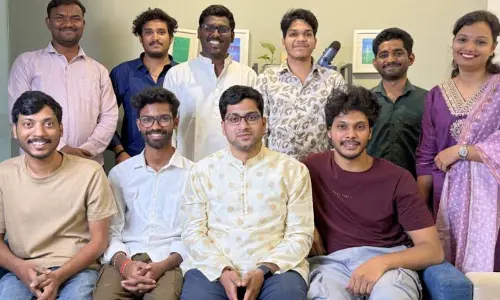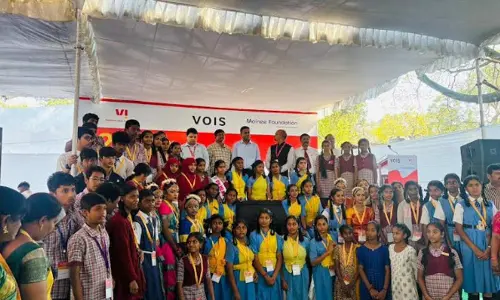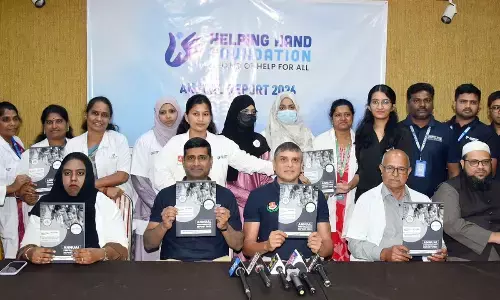Centre-State relations and groupthink

The corona crisis has brought to the fore, the challenges of Centre-State relations in both administrative and financial dimensions. Health is a State subject. It is the States which are in the forefront of managing the corona pandemic. However, they are starved of funds. It is true that both the Centre and the States are in financial distress because of the crisis but the States' distress is deeper. While GST collections have fallen short both for the Centre and the States, the Centre has other big sources of revenue like income tax, corporate tax and customs. The big source of revenue to States apart from GST is Excise duty on the sale of liquor. Because of the lockdown, that source has completely gone dry. States need to borrow more. But they cannot borrow more unless the Centre permits them
Today many States and their Chief Ministers have an interesting dilemma whether to continue lockdown further which might lead to wipe out States' economies or let a considerable number of people die and keep the economies going. The Prime Minister time and again holds video conferences with Chief Ministers on the same subject apparently trying to influence with his ideas through groupthink concept.
Some of the Chief Ministers, however, are not in total agreement of what the Prime Minister advocates and decided on their own on extending the lockdown beyond PM's stipulation like K Chandrashekar Rao of Telangana or gone on their own way without even not attending the conference like Pinarayi Vijayan of Kerala. Meanwhile, the Union government announced the extension of limited lockdown throughout the country till May 17, 2020 with a rider that areas will be divided into red, orange and green zones.
The Protagoras paradox concisely captures the paradox of our times in the sense as to who is the winner in the current dilemma touching the aspect of Centre-States relations in India. The Paradox of the Court, also known as the counter dilemma of Euthalos or Protagoras' paradox, is a paradox originating in ancient Greece. It is said that Protagoras took on a student Euthalos, for apprentice, on the understanding that the student pays Protagoras for his instruction after he wins his first court case.
When the student defaulted the teacher decided to sue the student in the court of law. His idea was if he wins the case, he will get payment from student and if he loses, the student still has to pay because he would have won his first case. Student thinks otherwise. If he wins the case, he won't have to pay the teacher, as the case is about his non-payment of fees. And if he loses the case, still he does not have to pay him since he did not win his first case yet. Either way he will not pay the teacher.
This is known as Protagoras paradox, whichever way one looks both have equally convincing arguments, one can go either way in supporting the teacher or the student and would not be wrong. Incidentally the Protagoras paradox has not been resolved till date. This is exactly the Centre-State relations in our so-called cooperative federalism of Indian subcontinent in the context of coronavirus pre, during and may be post lockdown!
India has a unique federal structure. Our Constitution makers put a lot of thought into designing our federal structure. While subjects of national importance like macroeconomic management, defence and external relations are with the Centre, all the subjects that matter to people's everyday lives such as law and order, education, health, agriculture are all with the States, though some of them also appear in concurrent list. Even where policies are set at the Central level, it is the States that implement those policies. For example, in industrial promotion, the Centre sets the policy, but it is the State machinery that has to facilitate investments besides drafting its own State policy too.
That is the reason, people, especially poor people look up to Chief Ministers rather than the Prime Minister for all their needs both during normal times, and particularly during crisis times like the present coronavirus crisis.
While States have important responsibilities that matter so much to the livelihoods of people, they do not have adequate financial resources to discharge those responsibilities. They collect some taxes, but these are not sufficient to meet all their responsibilities. That is the reason our Constitution provides for the Centre giving a share of its taxes to the States as per a formula determined by the Finance Commission which is appointed every five years. In addition, States borrow money from the market, but States cannot borrow as much as they want. FRBM comes in the way. As per the Constitution, States can only borrow the amount permitted by the Centre.
The corona crisis has brought to the fore, the challenges of Centre-State relations in both administrative and financial dimensions. Health is a State subject. It is the States which are in the forefront of managing the corona pandemic. However, they are starved of funds. It is true that both the Centre and the States are in financial distress because of the crisis but the States' distress is deeper. While GST collections have fallen short both for the Centre and the States, the Centre has other big sources of revenue like income tax, corporate tax and customs. The big source of revenue to States apart from GST is Excise duty on the sale of liquor. Because of the lockdown, that source has completely gone dry. States need to borrow more. But they cannot borrow more unless the Centre permits them.
Groupthink is the practice of thinking or making decisions as a group, resulting typically in unchallenged, poor-quality decision-making. It is a phenomenon when a group of people get together either physically or virtually and start to think collectively with one mind. Groupthink occurs in groups when individual thinking or individual creativity is lost or subverted to stay within the comfort zone of the consensus view. A classic example of groupthink was the decision-making process that lead to the Bay of Pigs invasion, whereby the US administration looked to overthrow Fidel Castro. The other examples are the Vietnam War, and the Watergate scandal.
May be the coronavirus context becomes another best example, who knows?
Groupthink is the name given to a theory or model that was extensively developed by Irving Janis (1972) to describe faulty decision making that can occur in groups as a result of forces that bring a group together in other words the group cohesion.
Groupthink leads to bad decisions because it encourages members of the group to ignore possible problems with the group's decisions and discount the opinions of outsiders. It influences decisions most when there are no clear rules for decision making. The impact of groupthink includes among others: bad decisions due to lack of opposition; lack of creativity; overconfidence in groupthink negatively impacts the profitability of an organisation; optimal solutions to problems may be overlooked and lack of feedback on decisions and hence poor decision-making.
Groupthink is a psychological phenomenon that occurs within a group of people in which the desire for harmony or conformity in the group results in an irrational or dysfunctional decision-making outcome. Cohesiveness, or the desire for cohesiveness, in a group may produce a tendency among its members to agree at all costs. This causes the group to minimize conflict and reach a consensus decision without critical evaluation.
When it comes to avoiding the trap of groupthink, there can be no better example than our Chief Minister K Chandrashekar Rao. In managing the corona crisis, he has shown the courage to dissent from the dominant view. For example, when everyone was veering towards lifting the lockdown after three weeks, Rao had the courage to differ from that view and decided that in Telangana, the lockdown will be extended till May 7, 2020. Ultimately Chandrashekar Rao proved right when the Union government extended the lockdown till May 17, 2020.
In video conferences with the Prime Minister, Chandrashekar Rao has demonstrated innovative and imaginative thinking going beyond groupthink. Instead of just asking for additional Central financial support, he has also indicated to the Prime Minister some ways of raising additional funding through Quantitative Easing and Helicopter Money. Why not PM give a thought to this?
(The writer is Chief PRO to the Chief Minister of Telangana. Views expressed are personal)










